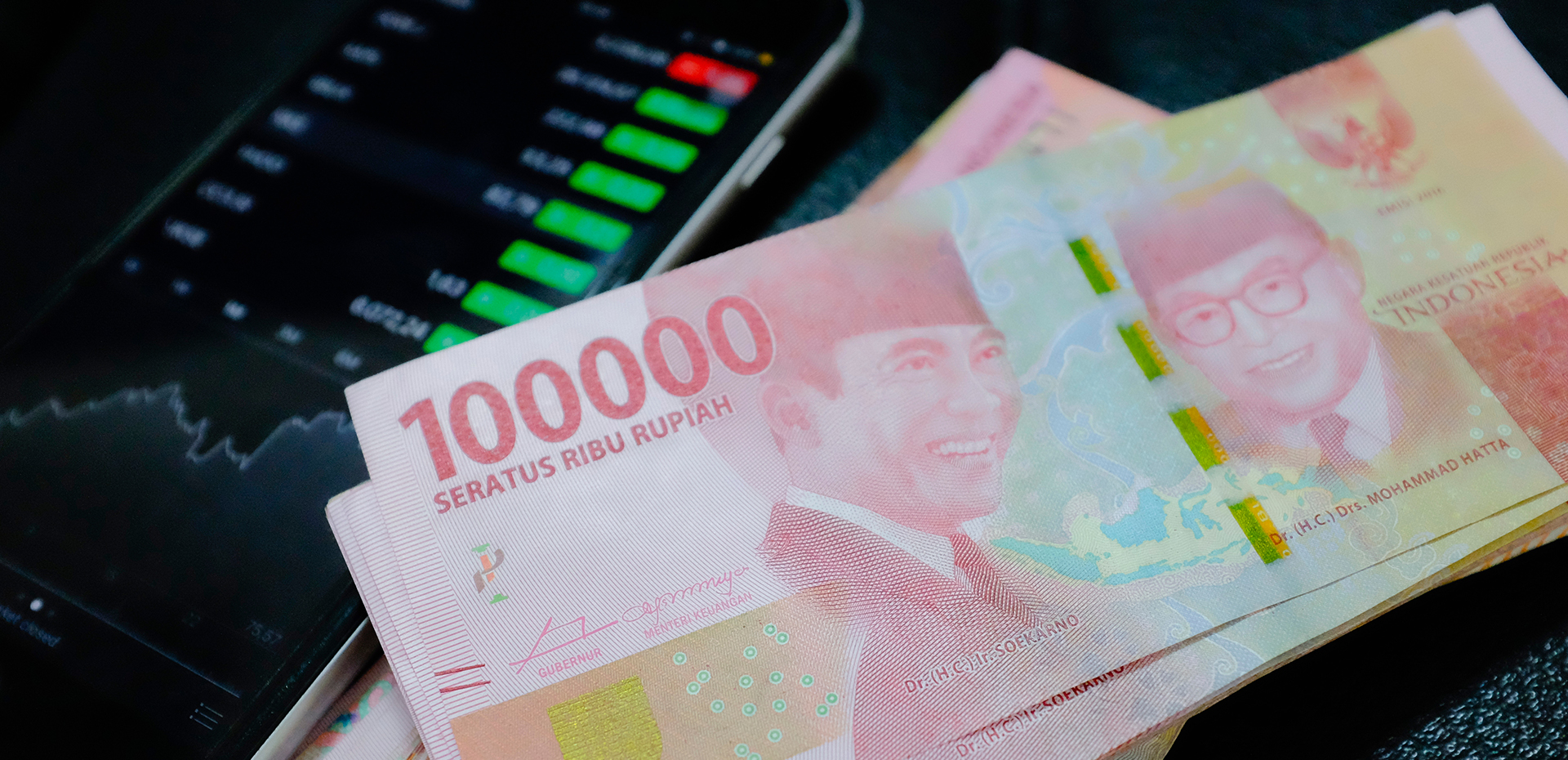Among the three licensed equity crowdfunding (ECF) platforms in Indonesia, Santara was the first to receive its license in September 2019. It says it's a pioneer in many aspects of the business model in the country, from developing a mobile app to a dynamic system that adjusts the minimum investment depending on how much has been committed.
The company is part of the Inspira Group, a collection of Yogyakarta SMEs, that was set up in 2012 when Reza Avesena & co. decided to start a business without external funding. After starting many small businesses and bringing them across the IDR 400m revenue threshold, Avesena and his partners decided to help other SMEs in Yogyakarta achieve a similar success through crowdfunding.
CompassList recently caught up with Santara's Chief Business Officer Krishna Wijaya to learn more about how the company began and what makes it stand out among the ECF platforms.
This interview has been edited for length and clarity.
How was Santara started?
We first started a scheme that was similar to equity crowdfunding, but more along the lines of revenue sharing. After we received our license, we shifted to our current equity crowdfunding model, with dividend payouts. Legally, there are more regulations to follow. Before we were licensed, we were more closely related to "syirkah", the term used in Islamic finance. Previously, we only had to provide profit and loss statements, but now we have to produce more reports and follow existing financial regulations more closely.
Were there any specific business models that inspired Santara's development?
We were inspired by the Shenzhen exchange and we tried to replicate their model. In that exchange, SMEs can easily get financing by selling equity. We wanted to create that system in Indonesia, but there was no system like that available in the market and there were also no regulations supporting such a system at that time.
The regulations came in at the end of 2018 and has been effective since January 2019. What did you do before the regulations were created?
We were already doing equity crowdfunding through online platforms, but it was limited to a smaller group of investors. On the back-end, the data is recorded manually on spreadsheets. As part of the licensing requirements, we had to comply with ISO 27001 standards, which changed many things on our back-end.
What did you do when the OJK (Financial Services Authority of Indonesia) told you to stop accepting new crowdfunding contracts around September 2018?
We diversified into other businesses while preparing to get our license and in September 2019 we opened our platform to the public. We still focused on building skills for MSMEs, which we identified as a problem. To survive as a company, we sold a book called Scale Up, which was about how to build up your business and get funding. We also posted such content on the Santara website.
After we got our license, we spun off the book business because the OJK regulations require an equity crowdfunding company to focus only on its business activity without any other side businesses.
How many SMEs got funded before your license, and how many are funded through your platform now?
Before we got our license, we received about 3,500 applications for issuers and we shortlisted 12. As of today [March 4, 2020] we have channeled IDR 29.8bn from 28 issuers. There is still one of them that's not fully funded and we have another one set to be listed today.
How did you filter that many applicants?
To filter the SMEs, we look at their profitability, accountability, and business sustainability. We look at their financial reports and how long the business has been in operation or how long the management has conducted business activities. We selected 12 businesses after considering our human resources capabilities and our physical distance from the businesses. We were considering the potential risks and how we can mitigate them, so our short-term focus at the time was to cover businesses in the Yogyakarta region. Now, most of our businesses are in the Java island, but we plan to open representative offices in Jakarta and Surabaya in 2Q20 to extend our presence. We are currently recruiting staff for this purpose.
How do you find new businesses to feature on your platform?
We have three avenues. The first is through local business communities. The second is through our app or website; the third is through collaborations with third-parties. Through these collaborations, we can efficiently and effectively reach out to more quality businesses and it also helps in our risk management efforts.
We are actually in talks to work with a company that makes accounting software, namely Jurnal.id from the Mekari Group. They will be able to provide a list of prospective businesses and financial reports that we can follow up on. We can get more leads this way. We also started working with [POS system developers] MOKA in January, and almost all of the new companies listed on our platform are from the MOKA leads.
On average, how much money are businesses looking to raise?
Each platform has its own investor profile. We are aware that our investors are not as wealthy as the ones on other platforms, such as, CrowdDana. What we are strong in is the spread of investors and the numbers, but capacity-wise they are still in the range of IDR 5m–7m. For the short term, we list issuers who look to raise within that capacity. For example, if on average people invest IDR 5m, we can multiply that and reach IDR 1.5bn. Therefore, we are focusing on businesses raising IDR 2bn and below, until we develop a community of investors with higher capacity. We are working with various organizations and networks to do this before featuring bigger capital requirements. We once listed a company raising IDR 6bn, and it required a lot of effort to convince people to invest IDR 20m–30m.
What types of businesses are on your platform now?
Most of the businesses on our platform are still F&B and on-farm businesses. We are looking for other business types too, such as education, beauty services and sports gyms. A few weeks ago, we listed an F&B business called Kraveformore, which sells healthy food. Many of our investors want more such businesses, with similar profiles, on our platform, .
Is that because that kind of business is trending these days?
It might be because the investors are thinking that healthy lifestyle will no longer be just a "nice-to-have" but a necessity. Internally, we have profiled 400 businesses to determine which ones we can recommend. We categorize businesses based on their potential and decide whether to avoid or pursue the opportunity.
Are you seeking franchise opportunities for these businesses?
Yes, but we are not currently looking into "project-based" businesses. Other crowdfunding companies like Bizhare accommodate individuals who want to be franchisees, but we don't do that right now. We think that only mature franchises like like Alfamart and Indomaret in the supermarket/retail sector will survive. For franchises, we work directly with the brand owners. For example, we work with Chicken Crush, a fried chicken franchise that's famous in Yogyakarta. We directly work with the owners instead of the franchisees. The same goes with beauty clinics like Beautybox.
How do you monetize?
Each platform has its own policy for fees. Some charge the investors, others charge the issuer. For now we only charge issuers a service fee, payable when they are fully funded. In principle it works like any other financial institution. The business owner gets 100% of the funds and they pay us a fee after they get funded. We're not charging investors yet, because we first want to expand our investor base and we want to make sure that the ROI we advertise on our website is not a gross ROI and is, instead, a net ROI.
What types of risks do you face in running this business?
There are many aspects to our risk management and mitigation strategies. We conduct very strict screening of the applicants. In 2Q20, we want to automate the risk screening and credit-scoring process. Currently, we decide whether or not to put up a fundraiser on our site within seven working days of application, as per the regulations. We are now developing a system to automatically accept or reject applications based on certain indicators.
We also face risks like money laundering and terrorism financing, so we make sure that we profile the customers carefully. Our investor application forms comply with requirements of the custodian banks, to make sure that the investors' income source and amount make sense. We also face the risk that some investors may leak financial reports of the issuers, on, for example, their social media platforms, forums or blogs. Our T&Cs state that investors are shareholders in the business and because the businesses are not public companies, they must ensure that the reports are not published.
Does Santara have external investors?
No, not yet. So far we have grown organically, supported by other business units in the Inspira Group of companies. We have a total of eight small companies and startups in the group. These companies have been around for a long time, for about 10 years or more. They are primarily in the creative industries.
Does Santara plan to seek external investors?
We've had more than 10 corporate investors contact us and we're already in negotiations. We want to make sure the pricing is correct and our visions are aligned. We want to work with investors who prioritize the development of SMEs and provide the right benefits for us. There are already such investors, but we are still in negotiations.
What's your outlook for the business?
We will be focused on MSMEs. More than 90% of the Indonesian workforce work in MSMEs. There is a discrepancy between the traditional financial institutions and equity crowdfunding or fintech in general. More people are going to fintech for loans, especially for business loans, and equity crowdfunding is one of them. We have seen this shift reported in some journal articles in recent years.
Every year, the cost of borrowing from banks have increased but for equity crowdfunding, fundraisers under IDR 1bn can get funded within seven minutes. Banks have been talking about the high cost of lending due to a lack of public retail funds, which contradicts the growth in P2P and crowdfunding.
We see that there are now more people with higher incomes who are getting interested in investing. Especially among Muslims, we see a growing inclination and ability to invest in usury-free additional income. That was part of what led us to start up this company.
But Santara is not exclusively for Muslim investors?
No. We try to translate the Sharia finance principles into a more general approach. The usury-free requirement is translated into a more universal creed of fairness, for example, and done through our early approach of revenue-sharing.
Do you have plans to create a Sharia-compliant brand or product?
We do. We are in talks with the Sharia board of the Indonesia Ulema Association. We do not want to be a Sharia platform, but we want to properly translate the sharia principles into something more general. We don't have a short-term target for that yet, although we have approached the Sharia-compliant framework from the start. For example, we provided investors with monthly reports of how the disbursed funds are being used and how the business is conducted, which is important in Sharia financing.












